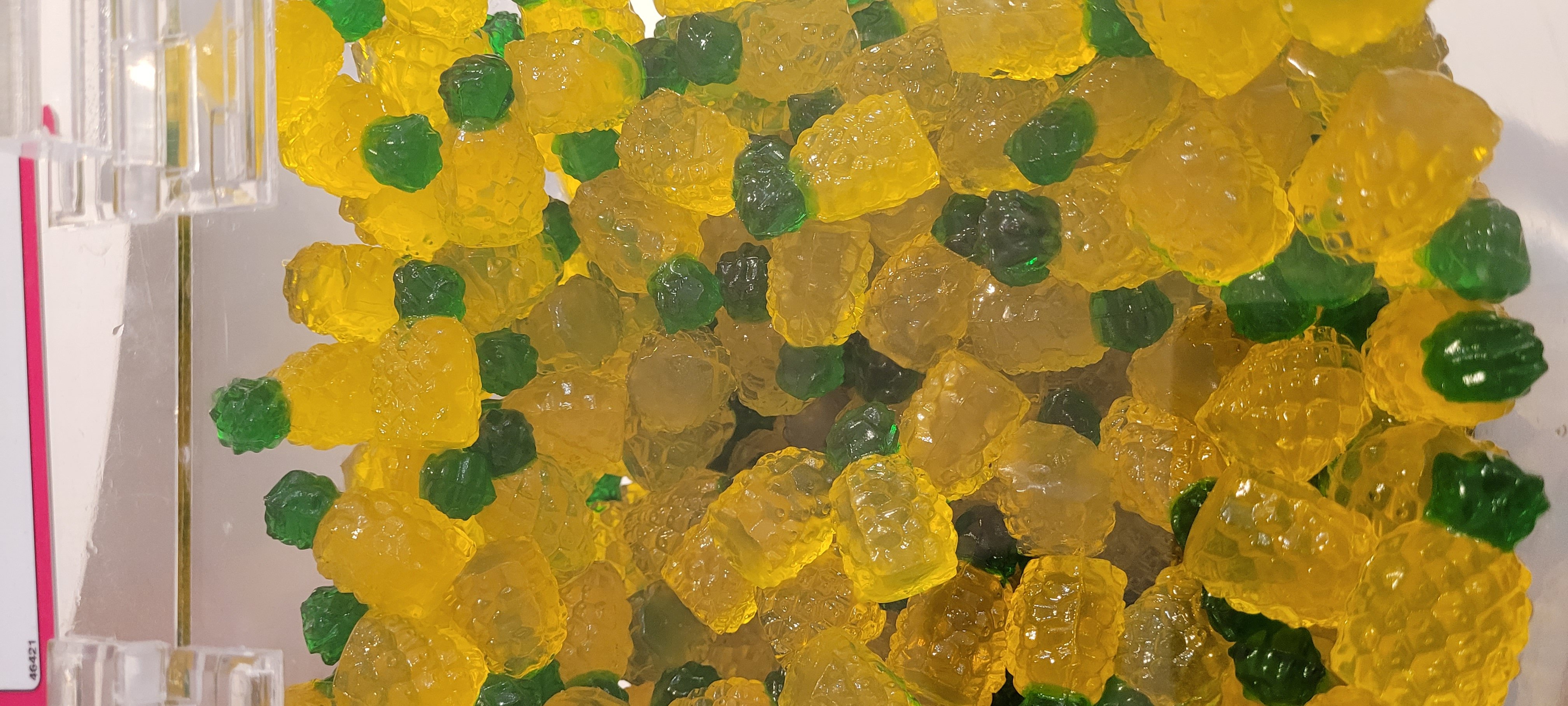Are people still mining chia ?
for POrn, but who downloads porn nowadays. unless its the illegal kind.
with this I can store at least 3 modern “AAA” games
More like zero, cause modern AAA games require an NVME (or at least an SSD) and this is a good old fashioned 7200 RPM drive.
Surely no games actually require a SSD?
A lot of modern AAA games require an SSD, actually.
On top of my head: Cyberpunk, Marvel’s Spider-Man 2, Hogwarts Legacy, Dead Space remake, Starfield, Baulder’s Gate 3, Palworld, Ratchet & Clank: Rift Apart
It’s not a hard requirement.
They stream data from it while you play, so if you don’t have an SSD you’ll get pauses in game play.
Sure, you might.
But Baulder’s Gate 3 for example, which claims to require an SSD in it’s system requirements runs just fine on a HDD.
It’s just the developer making sure you get optimal performance.
I wanna fuck this HDD. To have that much storage on one drive when I currently have ~30TB shared between 20 drives makes me very erect.
Average Lemmy user
Ain’t nothing about me is average except for the size of my cock.
Your array sounds pretty average to be fair
nephew
Why did they make an enterprise grade drive SMR? I’m out.

Because they simply cannot do it otherwise.
That’s fine…they don’t need to release it under their Exos line of enterprise drives. SMR don’t do well in raid arrays especially not highly utilized ones. They require idle time to cleanup and the rebuild times are horrendous.
There are a number of enterprise storage systems optimized specifically for SMR drives. This is targeting actual data centers, not us humble homelabbers masquerading as enterprises.
SMR is designed for enterprise raid that is SMR-aware.
I’m not aware of any open-source zoned storage raid but I think Ceph is planning to add support next month.
For affordable set it and forget it cold storage, this is incredible. For anything actively being touched, yeah definitely a pass.
Seagate so how long before it fails?
In my experience, not all Seagates will fail but most HDD’s that fail will be Seagates.
Because Seagate sell the most drives and all drives fail?
The thing is I’m a data hoarder who buys lots of HDD’s; both new and used. I have only bought a few Seagates. It’s always the Seagates that are fucked. I had a Toshiba and Western Digital fail on me but I have had 5 Seagates fail on me. Could be a coincidence, sure but the brand I have bought the fewest of had the most failures. I recognize this is not scientific in any way. I recently bought a brand new 8TB Seagate Barracuda and its still going strong. I hope if lasts a good while. My oldest drive is a 1TB Hitachi (RIP) from 2008. I can’t wait for 8TB SSD’s to become cheaper.
Nah, as a fellow data hoarder you’re 100% correct. I have a couple of dozen disks, and I’ve had failures from both Seagate and WD, but the Seagates have failed much more often. For the past couple of years, I’ve only purchased WD for this reason. I’m down to two Seagate drives now.
I feel like many people with a distaste for WD got burned by the consumer drives (especially the WD Greens). WD’s DC line is so good though, especially HC530.
About 3 hours.
At least it’s not a WD POS
It comes with three monkeys inside for redundancy:

Hello! 👋
Why does this have so many up votes
Check the post title ;)
Hello
Hello
Well, largest this week. And
Yeah, $800 isn’t a small chunk of change, but for a hard drive of this capacity, it’s monumentally cheap.
Nah, a 24TB is $300 and some 20TB’s are even lower $ per TB.
I bought 8TB for something like $300. 36TB seems quite attractive.
Depends on your use case. The linked drive according to seagate’s spec sheet is only rated for about ~6.5 power-on hours per day(2400 per year). So if just in your desktop for storage then sure. In an always (or mostly) on NAS then I’d find a different drive. It’ll work fine but expect higher failure rates for that use.
Omg I really have been out of the loop. I originally filled my 8 bay NAS with 6tb drives starting back in 2018. Once they would fill, i added another. 3 years ago, I finally ran out of space and started swapping out the 6tb for 10tb. Due to how it works, I needed to do 2 before I saw any additional space. I think i have 3 or 4 now, and the last one was 2 years ago. They did cost around $250 at the time, and I think i got 1 for just over $200. The fact that I can more than double that for only $300 is crazy news to me. Guess I am going to stop buying 10tb now. The only part that sucks is having to get 2 up front…
I paid $600+ for a 24 TB drive, tax free. I feel robbed. Although I’m glad not to shop at Newegg.
Yes, fuck Newegg (and amazon too). I’ve been using B&H for disks and I have no complaints about them. They have the Seagate Ironwolf Pro 24TB at $479 currently, but last week it was on sale for $419. (I only look at 5yr warranty disks.)
I was not in a position to take advantage as I’ve already made my disk purchase this go around, so I’ll wait for the next deep discount to hit if it is timely.
I hate amazon but haven’t been following stuff about newegg and have been buying from them now and then. No probs so far but yeah, B&H is also good. Also centralcomputer.com if you are in the SF bay area. Actual stores.
Newegg was the nerd’s paradise 10+ years ago. I would spend thousands each year on my homelab back then. They had great customer service and bent over backwards for them. Then they got bought out and squeezed and passed that squeeze right down to the customers. Accusing customers of damaging parts, etc. Lots of slimeball stuff. They also wanted to be like amazon, so they started selling beads, blenders and other assorted garbage alongside tech gear.
After a couple of minor incidents with them I saw the writing on the wall and went to amazon who were somewhat okay then. Once amazon started getting bad, I turned to B&H and fleaBay. I don’t buy as much electronic stuff as I used to, but when I do these two are working…so far.
What is B&H?
I’ve recently bought a series of 24TB drives from both Amazon and Newegg. Each one I got was either DOA or shortly thereafter. I just gave up but I would love to have a better source.
https://www.bhphotovideo.com/c/product/1809439-REG/seagate_st24000nt002_ironwolf_pro_22tb_3_5.html
They are a retailer in NYC. Their specialties (historically) lie in photography and all the tech surrounding that.
I got some 16TB drives recently for around $200 each, though they were manufacturer recertified. Usually a recertified drive will save you 20-40%. Shipping can be a fortune though.
EDIT: I used manufacturer recertified, not refurbished drives.
Refurbished drives sound scary. Any data to point towards that not being a problem?
As mentioned by another user, all drives fail, it’s a matter of when, not if. Which is why you should always use RAID arrangement with at least one redundant drive and/or have full backups.
Ultimately, it’s a money game. If you save 30% on a recertified drive and it has 20% less total life than a new one, you’re winning.
Here’s where I got some.
https://serverpartdeals.com/collections/manufacturer-recertified-drives
I looked around a bit, and either search engines suck nowadays (possibly true regardless) or there are no independent studies comparing certified and new drives.
All you get mostly opinion pieces or promises by resellers that actually, their products are good. Clearly no conflict of interest there. /s
The best I could find was this, but that’s not amazing either.
What I do is look at backblaze’s drive stats for their new drives, find a model that has a good amount of data and low failure rate, then get a recertified one and hope their recertification process is good and I don’t get a lemon.
I would absolutely not use refurbs personally. As part of the refurb process they wipe the SMART data which means you have zero power-on hours listed, zero errors, rewrite-count, etc - absolutely no idea what their previous life was.
If you’ve got a RAID array with 1 or 2 parity then manufacturer recertified drives are fine; those are typically drives that just aged out before being deployed, or were traded in when a large array upgraded.
If you’re really paranoid you should be mixing mfg dates anyway, so keep some factory new and then add the recerts so the drive pools have a healthy split.
Thanks! It seems too risky for something like a hard drive.
It will take about 36 hours to fill this drive at 270mb/s
That’s a long time to backup your giraffe porn collection.
How did you know about my giraffe porn?
What kind of degenerate do you think I am? That’s 36 hours to back up my walrus porn collection.

Woah I haven’t thought about that since high school. I vaguely remember an inside joke between some dope smoking buddies and i where we would say call the police in that nervous voice
…or at least call a rubber walrus protector salesman!
How you 'bout to call me out like that ?
That’s a lot of porn.
And linux distros
Honestly, when I first got into forums, I thought they were literally talking about Linux distros, because at the time, that’s literally all I was seeding since that’s what I was into.
Just say it’s full of porn, it’s easier to explain
Always a keep an nsfw tab open to swap to so your family doesnt see you on the arch linux wiki.
Depends on the audience tbh
I have around 150 distros seeding 🤣. I need to get those numbers up!
Werd
You wouldn’t download your mom.
No, but I have downloaded yours.
I have seeded your mom.
bstix’s mom, has got it going on.
You’d go broke. Of course it’s all Linux, family archives and DNA test data, BTC blockchain, backed up FOSS projects, archives of Wikipedia, Project Gutenberg and OpenStreetMap, and of course - POVRay renders.
Defragmenting…

Man, I used to LOVE defragmenting drives. I felt like I was actually doing something productive, and I just got to sit back and watch the magic happen.
Now I know better.
I’ve never had to defragment the ext4 drives in my server. Ext4 is fairly resistant to fragmentation.
Do you need it? Probably not. Do you want it? Oh, yeah.
I feel seen
deleted by creator
Yeah, but it’s Seagate. I have worked in data centers, and Seagate drives had the most failures of all my drives and somehow is still in business. I’d say I was doing an RMA of 5-6 drives a month that were Seagate, and only 4-5 a year Western Digital.
Is that just observational, or did you keep track? Backblaze does track their failures, and publishes their data: https://www.backblaze.com/blog/backblaze-drive-stats-for-q1-2025/
And they do have more Seagate failures than other brands, but that’s because they have more Seagates than other brands. Seagate is generally pretty good value for the money.
IMO, its not a brand issue. Its a seller/batch/brand issue. Hard drives are sensitive to vibration, and if you buy multiple drives from the same place, at the same time, and all the same brand and model, you might be setting yourself up for a bad experience if someone accidentally slammed those boxes around earlier in their life.
I highly recommend everyone buy their drives from different sellers, at different times, spread out over various models from different brands. This helps eliminate the bad batch issue.
Yeah. In the Backblaze data, you can see that annualized failure rates vary significantly by drive model within the same manufacturer.
But if maintaining drive diversity isn’t your thing, just buy a cold spare and swap it out when a failure inevitably happens (and then replace the spare).
The problem with same batch drives is failing together, potentially beyond your ability to recover with replacement drives.
What models of Seagate drives?
I’ve been running x4 Seagate ST8000NC0002s 24/7 for almost 5 years, plus 2 more I added about 6 months ago and they’ve never given me any trouble.
To be fair, the only HDDs I’ve ever had that failed were two I dropped because I wasn’t being careful enough.
I use all WD Golds for storage now but I have some Seagate barracudas from 2005 that still work. I don’t use them anymore but the data is still there. I fire them up every so often to see. I know that’s purely situational. I pretty much only buy WD now.
I hear you. I’m not sure I’ve ever had a Seagate drive not fail on me.
Out of the roughly 20 drives I’ve bought over the last decade or so, the only two failures were Seagate and they only made up five of the drives purchased. The other 15 are WD and all have been great (knock on wood).
I’ve had the same experience. The first HDD that failed on me was a Barricuda 7200.11 with the infamous firmware self-brick issue, and a second 7200.11 that just died slowly from bad sectors.
From then on I only bought WD, I have a Caviar Black 1TB from oh, 2009-ish that’s still in service, though it’s finally starting to concern me with it’s higher temperature readings, probably the motor bearings going. After that I’ve got a few of the WD RE4 1TBs still running like new, and 6 various other WD Gold series drives, all running happily.
The only WD failure I’ve had was from improper shipping, when TigerDirect (rip) didn’t pack the drive correctly, and the carrier football tossed the thing at my porch, it was losing sectors as soon as it first started, but the RMA drive that replaced it is still running in a server fine.
Every drive I’ve had fail has been a Seagate. I replace them out of habit at this point.
My 1st thought was “but it’s a Seagate” …
Imagine having that…then dropping it…
Summon Linus




















